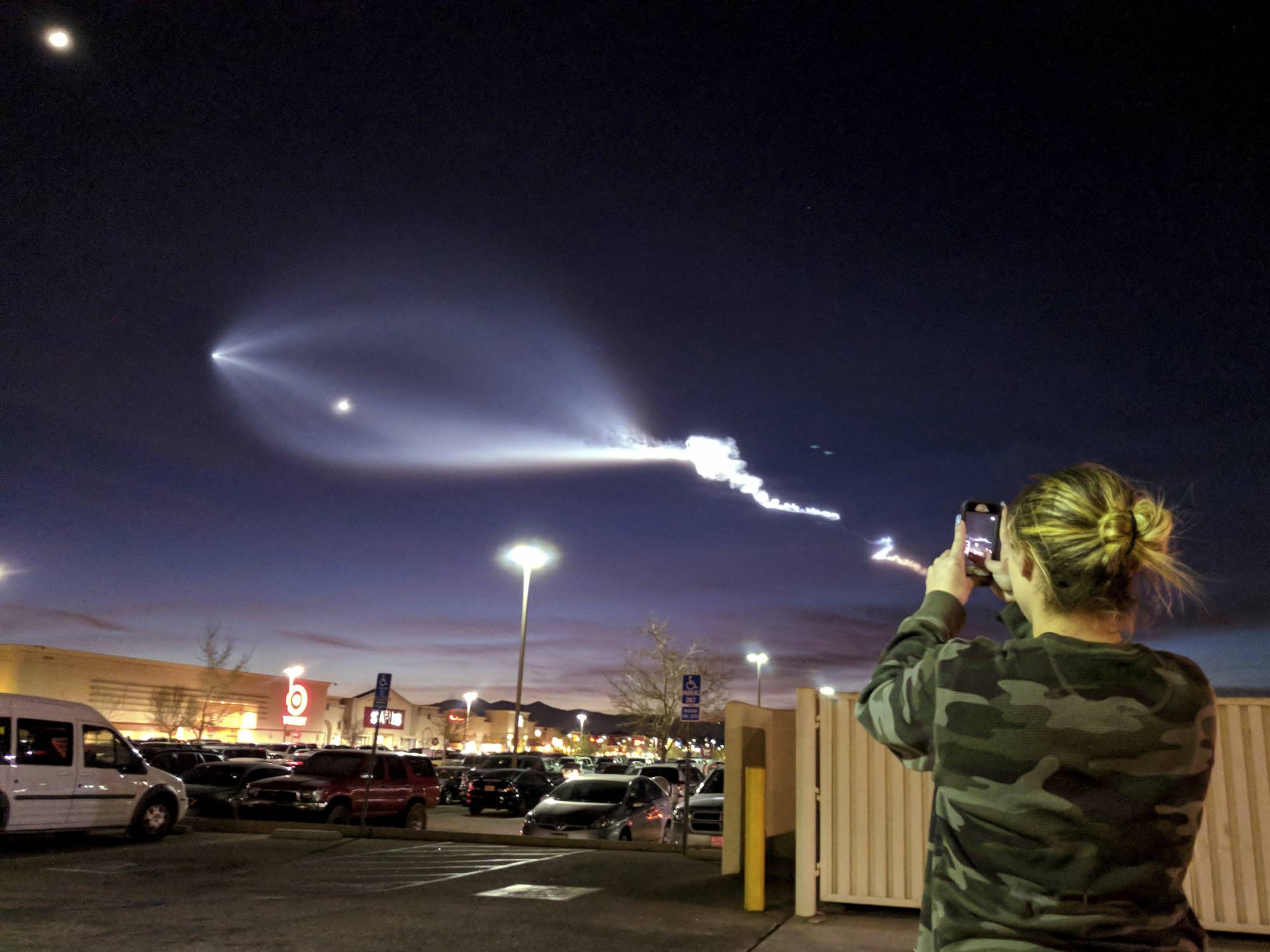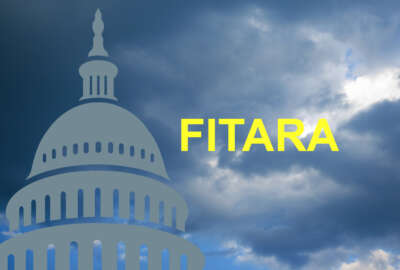A new mechanism to help agencies avoid buying counterfeit products
In today's Federal Newscast, agencies will have a new weapon in the battle against counterfeit or fraudulent products.
To listen to the Federal Newscast on your phone or mobile device, subscribe in PodcastOne or Apple Podcasts. The best listening experience on desktop can be found using Chrome, Firefox or Safari.
- Lawmakers are concerned about hackers taking down commercial satellites, and they want the Cybersecurity and Infrastructure Security Agency to help out. The Satellite Cybersecurity Act, introduced in the Senate this week, would have CISA provide voluntary cyber guidelines for commercial satellite owners and operators. The Government Accountability Office would also examine how federal agencies are supporting cybersecurity in the satellite industry. One of the bill’s sponsors is Homeland Security and Governmental Affairs Committee Chairman Gary Peters (D-Mich.).
- The National Reconnaissance Office launches some new contracts for commercial satellite vendors. The NRO announced awards for five satellite radar vendors this week. They’re the first deals the agency has awarded under a new contract vehicle for commercial capabilities. The NRO plans to analyze how each company’s offerings match up with its mission requirements, with the potential to order follow-on data and services. The NRO’s Pete Muend says it’s a model the agency will carry forward. “We’ll be looking at other phenomenologies over time, other initiatives. And frankly, it’ll be an iterative process as well, where we’re always trying to keep up with the market, look at new providers and what they can bring to bear.” (Federal News Network)
- The National Institute of Standards and Technology would be responsible for improving communication technologies among fire management agencies under a new bill in Congress. Congresswoman Young Kim (R-Calif.) introduced the legislation, which would require NIST to conduct research on wildfire communications systems and help develop technology for real-time data transmission. NIST would also have to carry out field testing to determine the time it currently takes fire management officials to transmit information. The agency would receive $3 million each year through 2027 to carry out this work, according to the bill.
- The House is looking to increase its capacity to deal with IT issues on its own. The House’s Chief Administrative Officer is building out a House Digital Service, with technology experts in customer relations, business analysis, design and more. CAO is standing up the service following several recommendations from the House Select Committee on the Modernization of Congress to improve member access to the latest IT. As part of this work, CAO is looking to industry for a cloud-based platform that would help members manage their constituent engagement.
- Agencies will have a new weapon in the battle against counterfeit or fraudulent products. Robomod is launching as part of the General Services Administration’s verified products portal. The new process will ensure that products awarded on multiple award schedule contracts and displayed on GSA Advantage are only offered by contractors authorized to sell them. GSA is using Robomod to improve the supply chain risk management process of its customer agencies. GSA says it will give contractors 30 days to dispute any findings and then it will remove the unauthorized products from GSA Advantage.
- The latest IT modernization scorecard is out. Two “As,” 10 “Bs” and 12 “Cs” are the latest grades on the Federal IT Acquisition Reform Act or FITARA scorecard. The 13th version of this biannual rating of agency IT modernization progress offered few surprises. The National Science Foundation and USAID saw their grades rise to “As” from “Bs,” while the General Services Administration lost their “A+” grade, dropping to a “B+.” House Oversight and Reform Committee lawmakers say the stagnant progress means it may be time for a change to this oversight effort. (Federal News Network)
- The two lawmakers behind FITARA are launching a Congressional IT Modernization Caucus. Congressman Gerry Connolly (D-Va.) and Darrell Issa (R-Calif.) say they’re looking for members to help raise awareness around the need for technology modernization. The caucus gives members of Congress an informal way to discuss issues around IT modernization, as well as educate other members on the subject. Connolly and Issa are the co-authors of the 2014 Federal Information Technology Acquisition Reform Act, or FITARA.
- Social Security and its American Federation of Government Employees bargaining units reach an agreement for employees to return to their offices, sort of. The agreement with several AFGE councils sets March 30, a Wednesday, as what they call the phased reentry date. But there’s lots yet to negotiate, component by component. Issues include specific telework policies as pre-pandemic style telework replaces evacuation telework. Also child care leave, transit and parking benefits, and the workplace safety plan. The agency reserves the right to postpone the whole thing. (Federal News Network)
- In an effort to create a more modern talent management system, the Marine Corps will let some troops opt out of promotion boards. Majors, lieutenant colonels and colonels will be able to defer their promotion evaluation in order to pursue more unconventional career paths. The Marine Corps hopes the tactic will lead to more long-term benefits and creative thinking. Marines have two opportunities to promote or they are forced to leave the service. The opt-out option will begin in 2024.
- After revamping how sexual assault is handled in the active duty military and the Reserve, lawmakers are now shifting focus to the National Guard. The National Guard lies between some confusing legal ground. Sometimes soldiers and airmen are under the jurisdiction of the state and sometimes federal. That makes prosecuting sexual assault hard. Lawmakers say they want more federal oversight of the Guard and more avenues for the Pentagon to help assault victims. Meanwhile, the Guard says it is implementing recommendations from an internal task force. However, it still has more than 50 suggestions from a Pentagon review board on sexual assault to put into place. (Federal News Network)
- There were about 7,000 fewer military funerals conducted by the Army in 2021 than the previous year. Military.com reports the service conducted just under 130,000 thousand ceremonies last year, according to data from the Army Human Resources Command. While it’s not unusual for the numbers to fluctuate, it’s unknown what exactly caused the dip, and experts did not want to speculate on whether or not the pandemic had any role to play in it.
Copyright © 2025 Federal News Network. All rights reserved. This website is not intended for users located within the European Economic Area.
Eric White
Eric White is news anchor and Federal Drive producer at Federal News Network.
Follow @FEDERALNEWSCAST
Related Stories
Related Topics
All News
Contracting
counterfeiting
Cybersecurity and Infrastructure Security Agency
Defense
Defense News
Federal Drive
Federal Newscast
FITARA
General Services Administration
GSA Advantage
IT Modernization
Management
National Guard
National Institute of Standards and Technology
Navy
Pete Muend
Technology
Tom Temin






